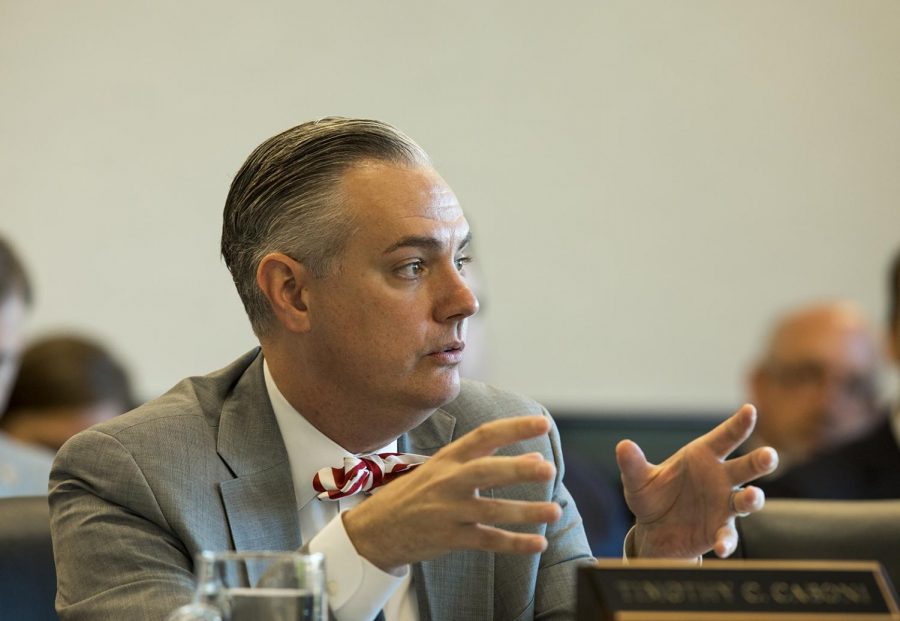New budget model presented at Board of Regents meeting
May 1, 2018
A budget model to potentially replace WKU’s current model was presented at the Board of Regents meeting on Friday.
The Finance and Budget Committee presented the Resource Allocation, Management and Planning (RAMP) to the Board as a potential model for WKU’s budget. According to a report at the meeting, effective resource allocation “leads to the distribution of useful information, data-informed decisions, and the effective utilization of institutional resources.”
WKU partnered with Huron Consulting Group to come up with RAMP. Huron offers management consulting in higher education, health care, life sciences and commercial industries.
Matt Smith, a representative for Huron said that a “vast majority” of colleges have transitioned towards a more decentralized, less cost-focused model. WKU is considering a change through RAMP to a model for effective resource allocation.
Effective resource allocation would avoid incremental budgeting, which “fails to evaluate base budget allocations or adequately reflect changes in key drivers,” according to the presentation.
Smith also presented goals to the Board for RAMP, which included aligning with Kentucky’s state funding formula to put WKU in a better position for funding, allocating funds in ways that would support the Strategic Plan and providing more transparency for resource allocation.
Although the RAMP structure was presented, Senior Vice President for Finance and Administration Ann Mead said WKU’s budget model will not be ready until she can “engage with new deans and the provost.”
WKU is currently searching for a new provost and vice president of academic affairs to replace current Provost David Lee. There is also an ongoing search for a new dean for the College of Education and Behavioral Sciences, according to WKU’s Human Resources webpage.
Mead estimated that they were more than halfway finished with the new budget model. Both the steering committee and the joint budget council are involved in the process.
“It’s an intense, important process,” Mead said.
Mead said an open forum on campus for the model will be held in early May, with a panel discussion following in June. Representatives of universities that transitioned to the resource allocation model will make up the panel to give WKU an idea of how the transition took place.
WKU’s budget for the 2017-2018 fiscal year was just over $4.1 million, according to 2017-2018 executive summary. This was an almost 3 percent increase from the previous year’s budget of about $4 million.
WKU has faced budget challenges in recent years with a decrease in both enrollment and state funding.
News reporter Emily DeLetter can be reached at 270-745-6011 and [email protected]. Follow her on Twitter at @EmilyDeLetter.
























